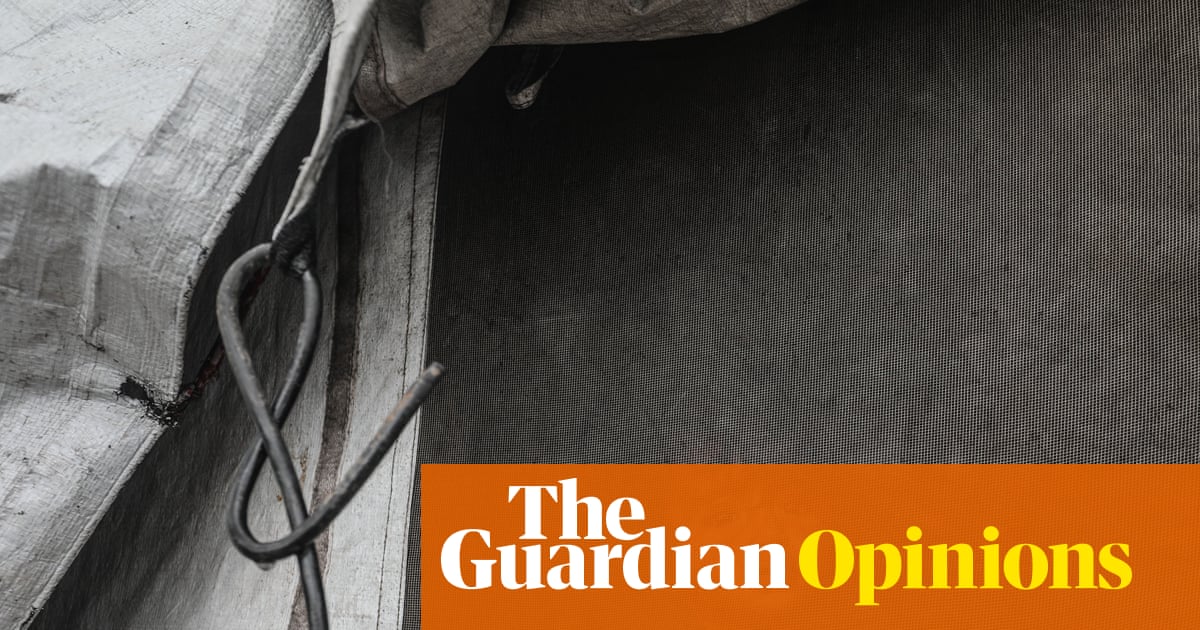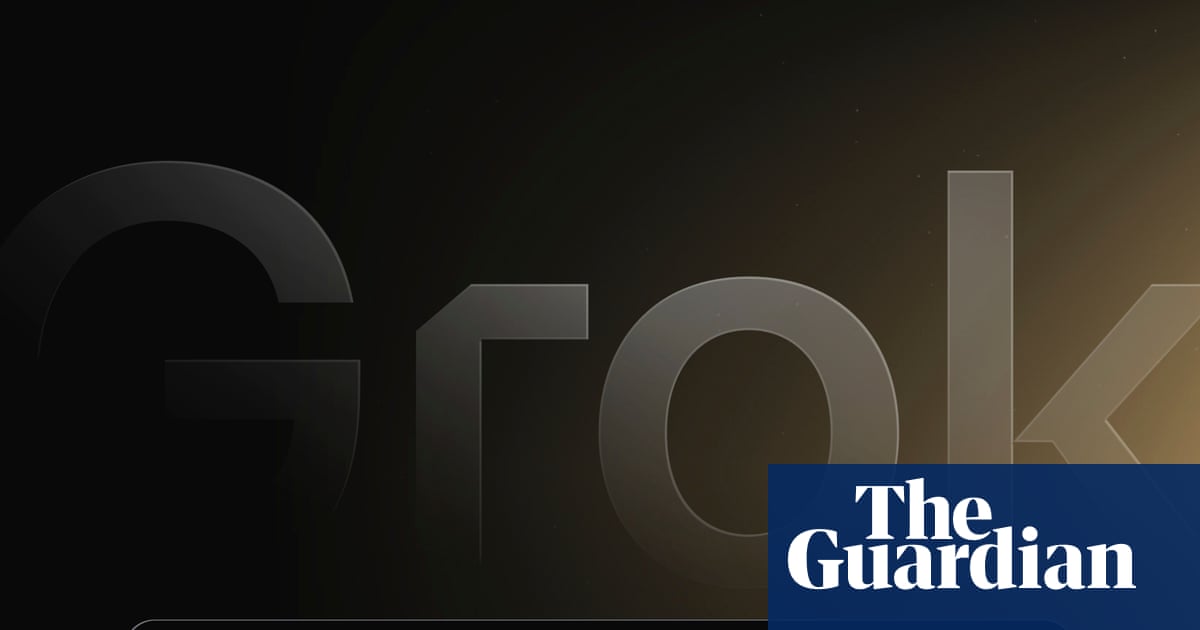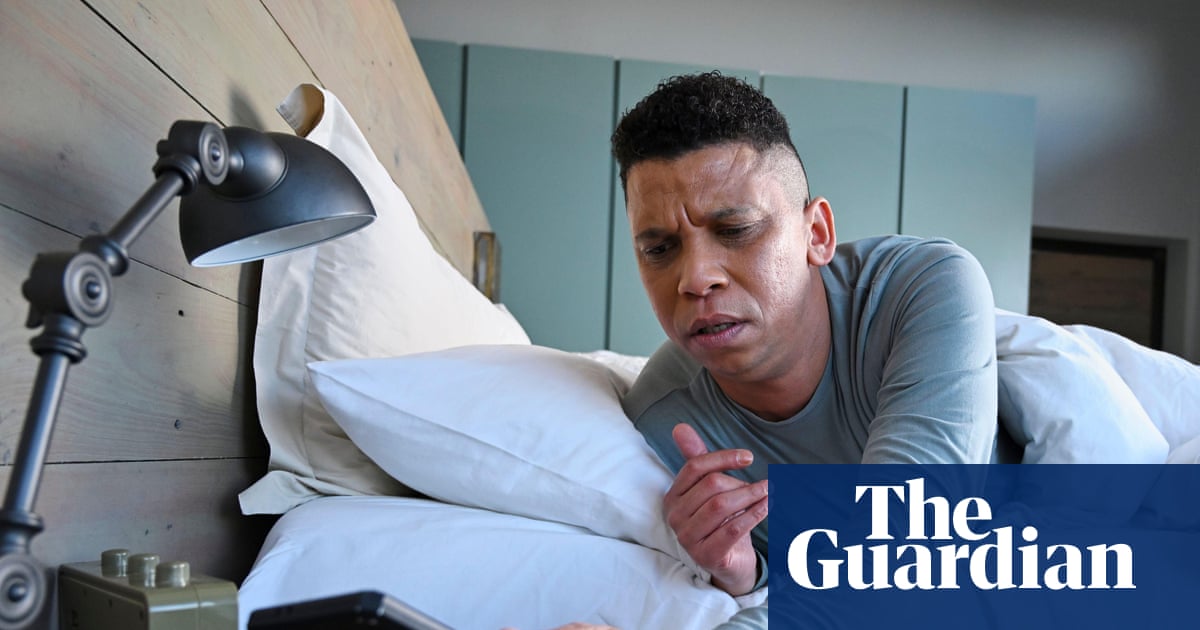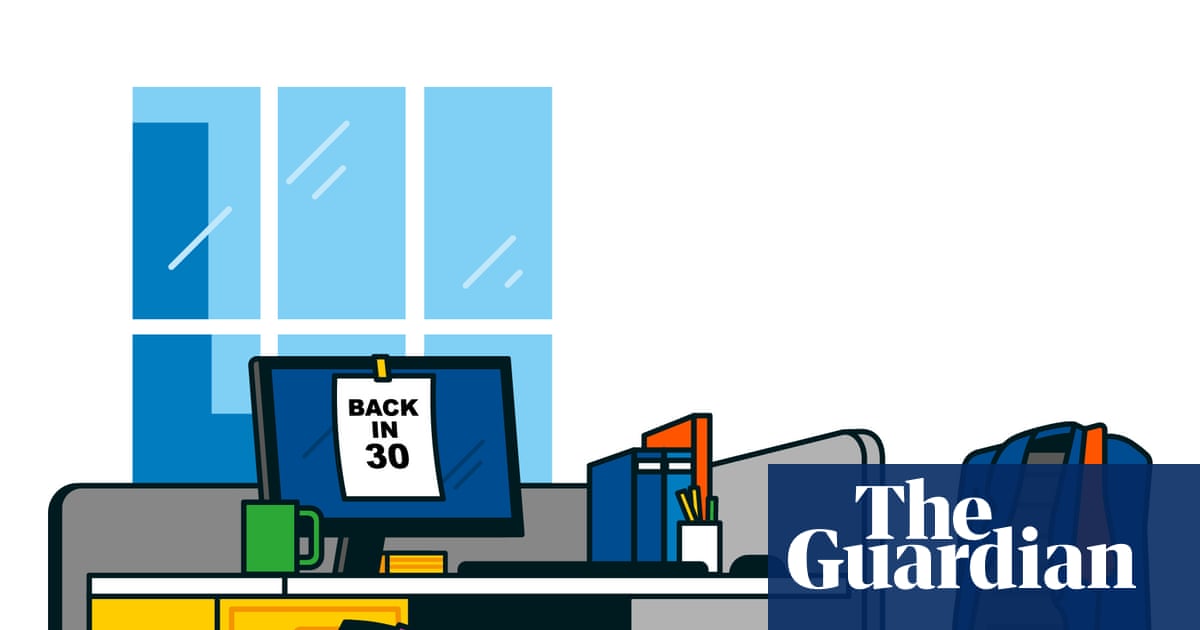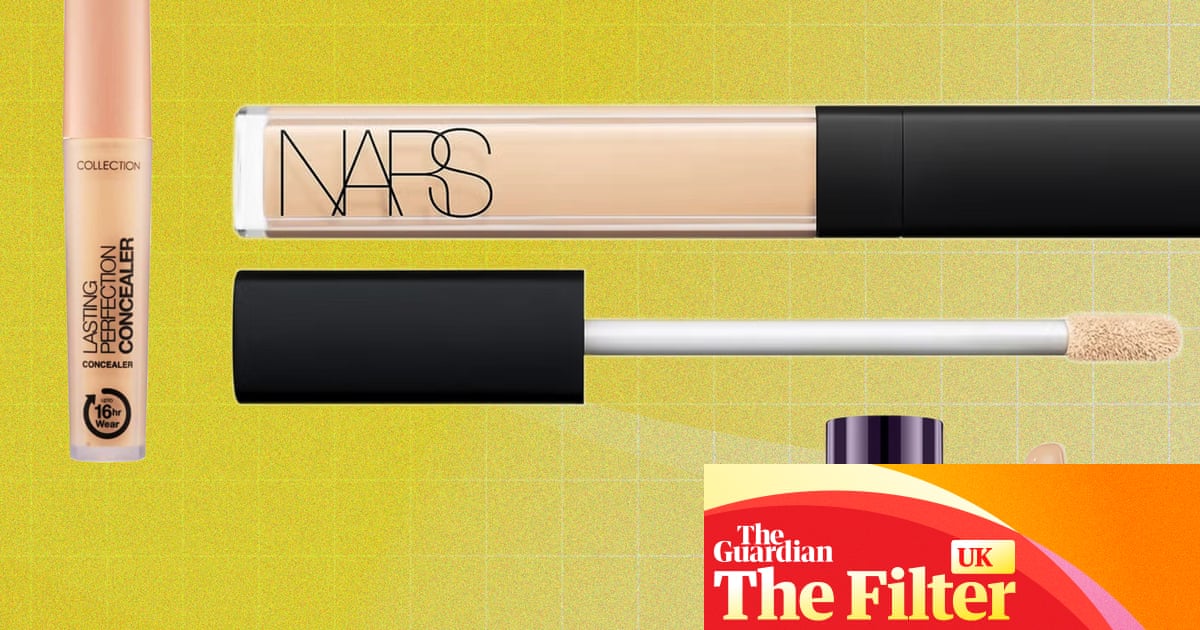Most adults look back on their childhood earnings and think of pocket money, Christmas gifts or a Saturday job. These days, however, children as young as seven are already fluent in entrepreneurship, running side hustles, talking about profits and losses and razor-sharp in their focus on honing sophisticated business skills.
Research from the children’s debit card company GoHenry found that two in three young people want to be entrepreneurs when they were older, and one in eight have made more than £1,000 from their side hustle in the last year.
With a world of digital tools at their fingertips, and all the education they could hope for on YouTube and TikTok, it is no surprise that “kidpreneurism” is the future. We spoke to four young people aged seven to 16 about how and why they launched their own enterprises.
Levi, 10: ‘3D printing is the way I’ll make money’
Obsessed with the business reality TV shows Shark Tank and Dragons’ Den, Levi from Birmingham began mimicking the deals he saw on those programmes in school at the age of six. He charged friends 50p or £1 in exchange for a drawing of their choice, making about £50 before teachers shut his venture down.
“I tried to sell the drawings on eBay but it didn’t work as well,” he says. “But there are still a lot of other businesses I’ve had that have worked out.”
He has earned about £600 from buying and selling old Lego and Pokémon cards on eBay, as well as reselling Prime energy drinks, the viral beverage masterminded by the YouTubers KSI and Logan Paul.
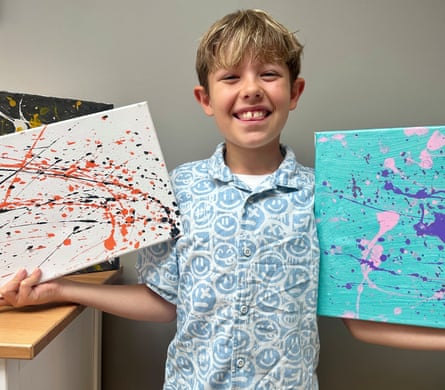
“This year, I thought: ‘I need more money,’” Levi says. He asked his parents, who are both songwriters, to lend him some money for a 3D printer, using some techniques he learned from Shark Tank.
“I said to my parents: ‘If you lend me some money to buy a 3D printer, [at first] you’ll get all the profits from the merch I’ll make,’” he says. “‘But once you’ve made your money back, you get 20% of the profits and I get 80%.’”
Referring to his dream 3D printing business as an “infinite money cycle”, Levi is confident: “3D printing is the way I’m going to make the most money.” He plans to print key chains and badges to sell at festivals and online, and start to repay his parents when sales take off.
“When I grow up, I want to start off being employed and learning things from an older person,” he says. “After that, I might start my own business.”
Lila, seven: ‘I feel super happy every time I sell a toy’
She may be only seven, but Lila has already earned £800 from her business, L’il Toybox, which sells 3D-printed characters on Etsy and at markets and fetes.
“At fairs, my dad and I saw other people selling 3D-printed toys, and we thought: ‘We can do better,’” she says.
Lila’s father, a web designer, started her off with an initial investment by buying their first 3D printer – a single-colour version – for £200. He helped her get to grips with the technical knowhow of designing and printing each character. Once she had made some profits, Lila’s earnings were enough to upgrade to a multicolour 3D printer, which cost about £500.
Lila, who lives in Norfolk, spends about 10 hours a week researching online to see what other people are printing, as well as watching YouTube videos to stay on top of the latest trends. “I also practise playing with things we create to make sure they are good quality and don’t break,” she says.
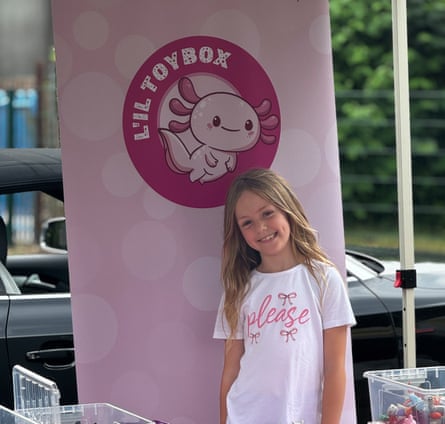
Lila and her father have created a variety of animals such as pandas and geckos, and base some of their creations on what is topical, for example, making and selling skeletons and pumpkins before Halloween.
Each character takes up to 10 hours to make, although the printer can be left on and unattended. The materials for the smaller ones can cost as little as 50p and Lila sells each piece for between £3 and £8.
She has taken £950 from sales and repaid some of the cost of the printer purchase – she repays some each time she attends a fair, and also makes a contribution towards the maintenance costs.
“I feel super happy every time I sell a toy,” Lila says. “I like making things with my dad because we get to spend lots of time together.
“Having a business, running the stall and taking payments helps me understand maths. It also helps me feel more confident talking to grownups.”
Rodgean, 12: ‘Dealing with cash helps me in maths’
Rodgean’s reselling business was fuelled by an urge to declutter. He asked his mother whether he could sell old things that were taking up space, such as unwanted toys and clothes and shoes he had outgrown. She was planning to give or throw them away, so she agreed.
He markets on Vinted and at car boot sales and sells at least one item daily, basing the price on the quality and age of the item and how many people are interested in it.
Rodgean’s business really took off over the summer holidays, when he had more free time to spend on listing and selling items. So far he has made more than £70.
He now creates bracelets and scarves to sell alongside his secondhand items, and even plays the ukulele at car boot sales to draw in the crowds. “It feels like a reward at the end of the week to be able to have fun and sell my items,” he says.
Rodgean, who is from the Midlands, puts most of what he earns into a savings account for university and uses some of it to reinvest in his business, buying glue and craft equipment and scarves to decorate. He allows himself money for the occasional treat. He also regularly allocates a portion to send to Cancer Research UK.
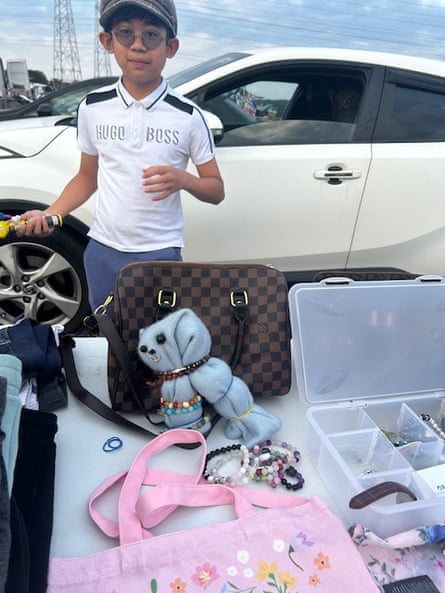
Rodgean says his business and his schoolwork go hand in hand, and he has learned valuable lessons such as about supply and demand. He also learns from the money lessons on his GoHenry app.
“Dealing with cash and change helps me in maths, while haggling and negotiating helps my confidence in debating club,” he says. “I use the money skills that I learn from the car boots for my academics, because it helps me understand things in a different way. For example, I increase the value if there are more people, and then I lower it once it settles down.”
Rodgean also highlights the environmental benefit of buying and selling secondhand. “It’s not just financially better, it also helps with the environment and prevents waste,” he says. “Selling secondhand is really useful, sustainable – and fun, too.”
Skyla, 16: ‘It helps set you up for managing your time’
When Skyla from London was given a £30 Snazaroo face-painting kit for her 15th birthday, she could not have imagined how business would be booming only a year later.
She began practising on her little brother, and took some pictures, which her mother posted on Facebook, offering Skyla’s services for £30 an hour for birthday parties.
Soon, Skyla had her first job and it snowballed from there, with glowing reports of her skills spreading by word of mouth. Social media has been instrumental in spreading the word.
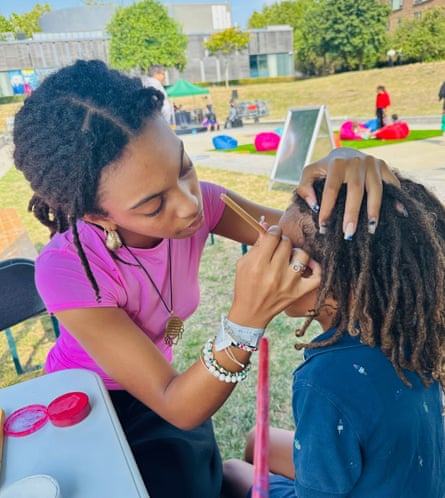
Skyla also works as a waitress and does a few face-painting parties every month, with business booming over the school holidays. She now charges £60 an hour, and has made profits of about £2,000 so far.
“I want to be an artist in the future, so having this business helps me artistically, but it’s also good experience knowing how to promote myself and how to speak to people professionally,” she says.
“Running your own business helps set you up for managing your money and your time in the future.”
Setting up a business
There are no specific laws preventing children from running their own sole trader businesses, although you cannot register as a company director until you are 16.
While the children’s wellbeing and schools bill, which is going through parliament, aims to update child employment laws, it does not regulate small businesses or side hustles.
Everyone needs to pay tax regardless of age, and children have the same annual tax allowance and liabilities as adults.
Like adults, children are entitled to a personal tax-free allowance up to £12,570. This is how much income you can earn before you need to pay tax.
HM Revenue and Customs has an online calculator to work out if you owe any tax.

 3 months ago
82
3 months ago
82
